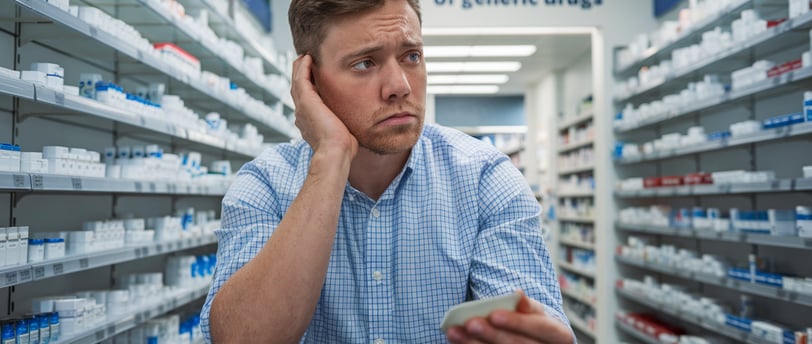Tariffs Raise Drug Prices?
2/3/20251 min read


According to recent reports from NBC News and Business Insider, President Trump's proposed tariffs on imports from China, Mexico, and Canada could significantly increase the prices of prescription drugs, particularly generics, for American consumers. These tariffs, which could reach up to 25% for some countries, may disrupt the pharmaceutical supply chain and potentially lead to drug shortages, affecting the affordability and accessibility of essential medications.
Generic drugs, which make up about 90% of all prescriptions filled in the U.S., are particularly vulnerable to price increases from proposed tariffs. With approximately half of all generic drugs and 80% of active pharmaceutical ingredients sourced from countries like China and India, a 20% blanket tariff or 60% tariff on Chinese imports could significantly drive up costs. This impact is exacerbated by the fact that few generic drugs are manufactured domestically, as production has shifted overseas due to diminishing profitability in the U.S. market.
The proposed tariffs could significantly disrupt the supply of active pharmaceutical ingredients (APIs), which are crucial components in drug manufacturing. Approximately 80% of APIs used in U.S. drug production are sourced from countries like China and India. Imposing tariffs on these imports could lead to supply chain disruptions and exacerbate existing drug shortages. The American Society of Health-System Pharmacists (ASHP) has expressed concern that tariffs on APIs could upend pharmaceutical manufacturing and create new medication shortages or worsen existing ones. This situation is particularly problematic for generic drugs, which operate on narrow profit margins and are especially prone to shortages. The potential disruption in API supply could have far-reaching consequences for drug availability and affordability in the United States.
Care
Your trusted partner for personalized pharmacy services.
Connect with us
Pharmacy
© 2024. All rights reserved.
